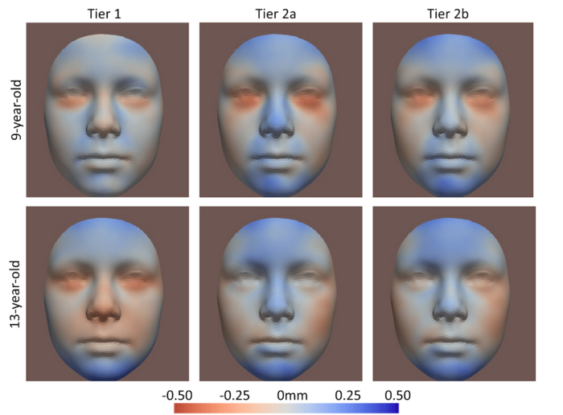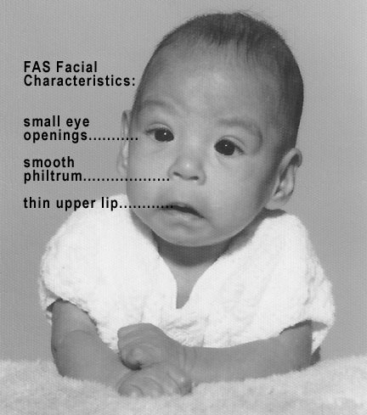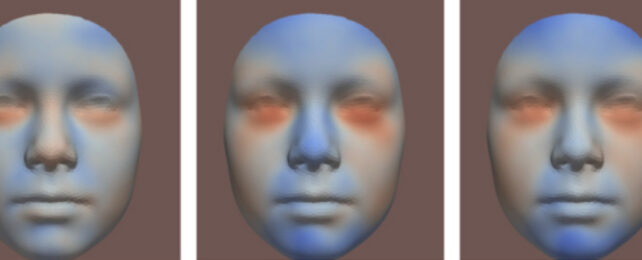Just one glass of wine a week during pregnancy has been linked to permanent changes in a child's facial features – and possibly their cognitive abilities too.
Dutch researchers studied 200 traits in the faces of more than 5,600 school-aged children using 3D imaging and a deep learning algorithm. They found differences between the facial features of the children whose mothers drank alcohol during pregnancy and those that had not.
Drinking just 12 grams of alcohol a week – or one standard drink – was linked to permanent alterations in the child's face.
Prenatal alcohol exposure was associated with chins that protruded further, when compared to children from mothers who didn't drink at all during pregnancy.
Alcohol exposure in the womb was also associated with a shorter nose that turned up slightly, and a slight regression of the region below their eyes.
The more alcohol the mothers consumed during gestation, the more prominent the facial changes appeared.
The effect seemed to weaken with age, with the facial changes in the 13-year-old group being less prominent than those in the nine-year-old group.
Most of the mothers who drank during pregnancy also drank in the three months before falling pregnant.
"Our study suggests that women who are pregnant or want to become pregnant soon, should quit alcohol consumption several months before conception and completely during pregnancy to avoid adverse health outcomes in the offspring," the researchers wrote.
-

As prenatal alcohol exposure increases from left to right in children, the facial changes become more pronounced as shown by stronger reds (showing features sinking in) or stronger blues (showing features jutting out more). (Liu, et al., Human Reproduction, 2023)
Heavy drinking in pregnancy is already considered to cause what's known as fetal alcohol spectrum disorder, with characteristic changes to a baby's face, cognitive abilities, and behaviour.
"I would call the face a 'health mirror' as it reflects the overall health of a child," said Gennady Roshchupkin, an epidemiologist at Erasmus Medical Centre in The Netherlands who led the study.
"A child's exposure to alcohol before birth can have significant adverse effects on its health development and, if a mother regularly drinks a large amount, this can result in foetal alcohol spectrum disorder, which is reflected in children's faces."
Babies with this syndrome tend to have a very thin upper lip, smooth skin between the nose and the upper lip (the philtrum), smaller eyes, and an upturned nose. They often struggle with concentration, memory tasks, schoolwork, and socialising.
-

A baby with the typical facial features associated with fetal alcohol spectrum disorder. (Teresa Kellerman/Wikipedia)
One previous study showed that less than 70 grams of alcohol per week during pregnancy impacted the craniofacial development of infants.
This recent study is the first to look at alcohol consumption levels as low as 12 grams per week.
In practical terms, health advisors argue there is no quantity of alcohol considered to be absolutely consequence free when it comes to the development of an unborn child.
This paper was published in Human Reproduction.
